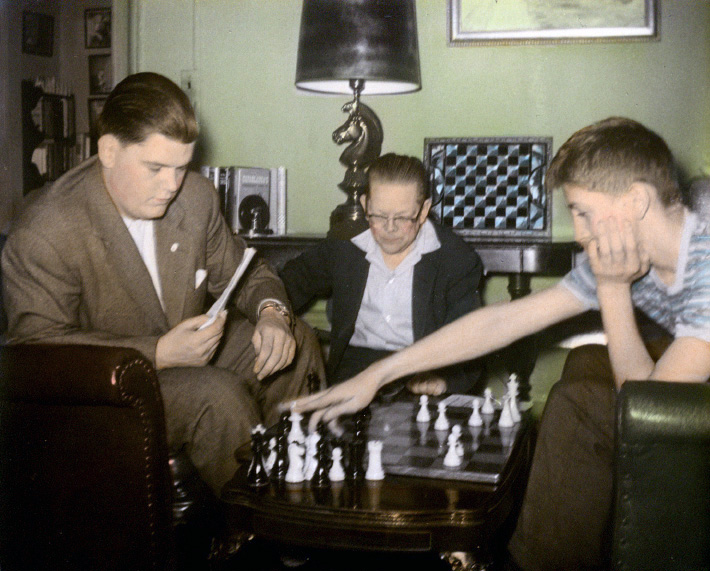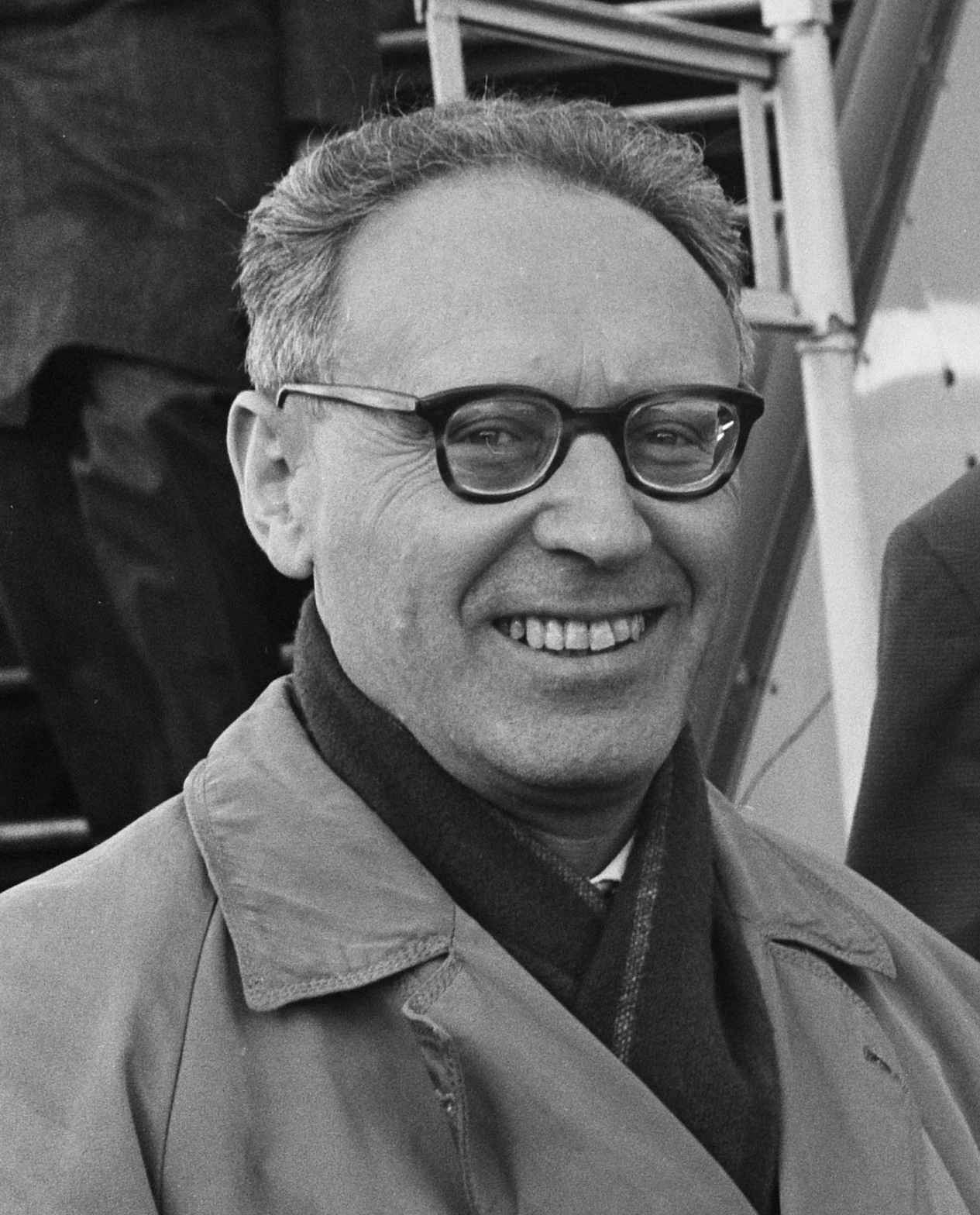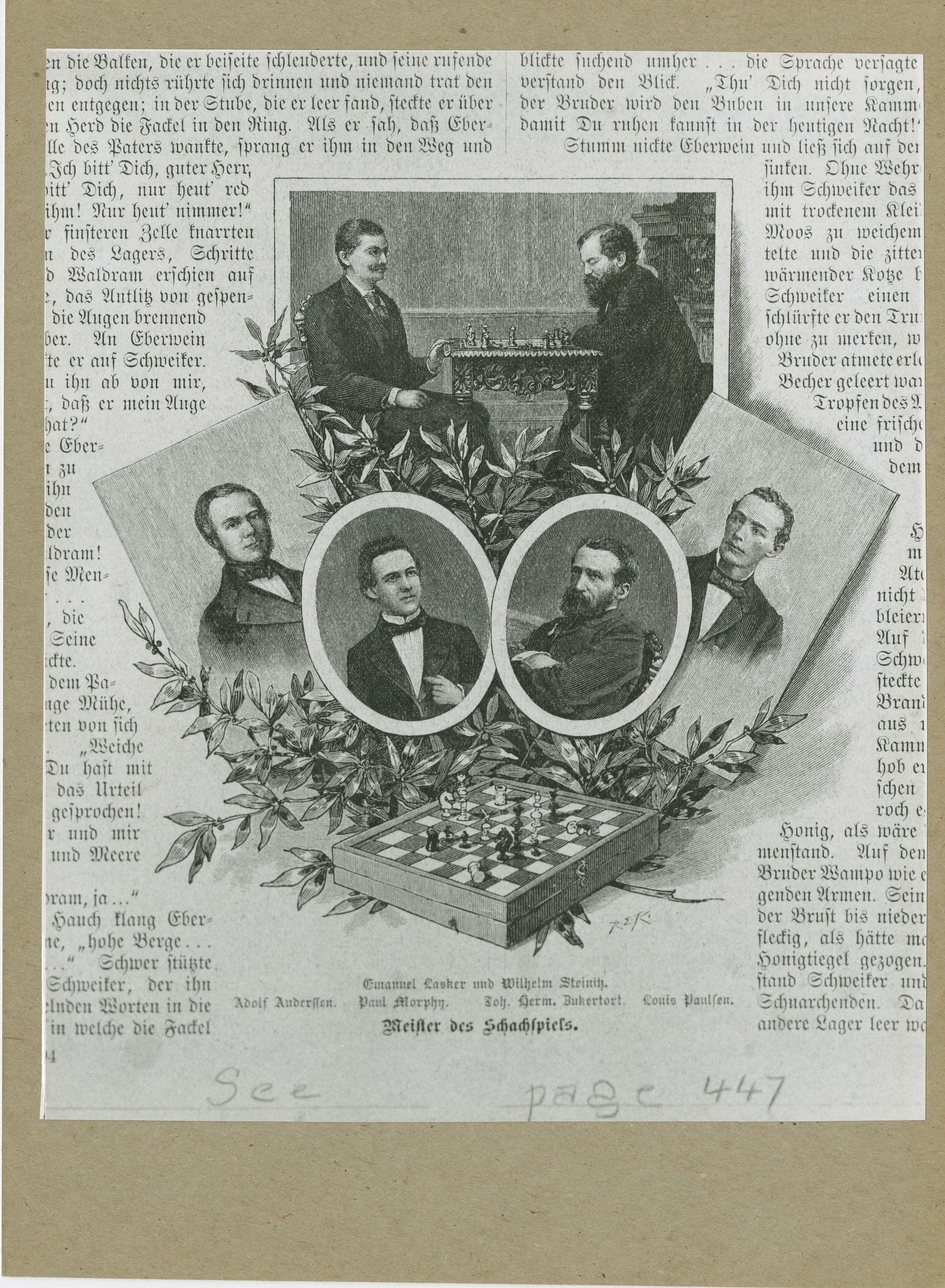|
Economical Mate
In chess, an economical mate is a checkmate position such that all of the attacker's remaining knights, bishops, rooks and queens contribute to the mating attack. The attacker's king and pawns may also contribute to the mate, but their assistance is not required, nor does it disqualify the position from being an economical mate. Economical mates are of interest to chess problem composers for their aesthetic value. In real gameplay, their occurrence is incidental. Nevertheless, some notable games have concluded with an economical mate such as the Opera game, won by Paul Morphy. In chess problem composition, the concept of an economical mate is motivated by the aesthetic notion of economy of force, the idea that a composition is simpler and more beautiful when it uses minimal material to maximal effect. When all of the attacker's pieces—apart from the king and pawns—contribute to a checkmate, this also means that none of the more powerful units have been left unused ... [...More Info...] [...Related Items...] OR: [Wikipedia] [Google] [Baidu] |
László Polgár
László Polgár (born 11 May 1946) is a Hungarian chess teacher and educational psychologist. He is the father of the famous Polgár sisters: Zsuzsa, Zsófia, and Judit, whom he raised to be chess prodigies, with Judit and Zsuzsa becoming the best and second-best female chess players in the world, respectively. Judit is widely considered to be the greatest female chess player ever as she is the only woman to have been ranked in the top 10 worldwide, while Zsuzsa became the Women's World Chess Champion. He has written well-known chess books such as ''Chess: 5334 Problems, Combinations, and Games'' and ''Reform Chess'', a survey of chess variants. He is also considered a pioneer theorist in child-rearing, who believes "geniuses are made, not born". Polgár's experiment with his daughters has been called "one of the most amazing experiments…in the history of human education." He has been "portrayed by his detractors as a Dr. Frankenstein" and viewed by his admirers as "a Hou ... [...More Info...] [...Related Items...] OR: [Wikipedia] [Google] [Baidu] |
Paul Morphy
Paul Charles Morphy (June 22, 1837 – July 10, 1884) was an American chess player. He is considered to have been the greatest chess master of his era and is often considered the unofficial World Chess Champion. A chess prodigy, he was called "The Pride and Sorrow of Chess" because he had a brilliant chess career but retired from the game while still young. Commentators agree that he was far ahead of his time as a chess player, though there is disagreement on how his play ranks compared to modern players. Morphy was born in New Orleans to a wealthy and distinguished family. He learned to play chess by simply watching games between his father and uncle. His family soon recognized the boy's talent for the game and encouraged him to play at family gatherings, and by the age of nine he was considered to be one of the best players in the city. At just twelve years of age, Morphy defeated visiting Hungarian master Johann Löwenthal in a three-game match. After receiving his law ... [...More Info...] [...Related Items...] OR: [Wikipedia] [Google] [Baidu] |
Bobby Fischer
Robert James Fischer (March 9, 1943January 17, 2008) was an American chess grandmaster and the eleventh World Chess Champion. A chess prodigy, he won his first of a record eight US Championships at the age of 14. In 1964, he won with an 11–0 score, the only perfect score in the history of the tournament. Qualifying for the 1972 World Championship, Fischer swept matches with Mark Taimanov and Bent Larsen by 6–0 scores. After another qualifying match against Tigran Petrosian, Fischer won the title match against Boris Spassky of the USSR, in Reykjavík, Iceland. Publicized as a Cold War confrontation between the US and USSR, the match attracted more worldwide interest than any chess championship before or since. In 1975, Fischer refused to defend his title when an agreement could not be reached with FIDE, chess's international governing body, over the match conditions. Consequently, the Soviet challenger Anatoly Karpov was named World Champion by default. Fischer subseq ... [...More Info...] [...Related Items...] OR: [Wikipedia] [Google] [Baidu] |
Paul Keres
Paul Keres (; 7 January 1916 – 5 June 1975) was an Estonian chess grandmaster and chess writer. He was among the world's top players from the mid-1930s to the mid-1960s, and narrowly missed a chance at a World Chess Championship match on five occasions. As Estonia was repeatedly invaded and occupied during World War II, Keres was forced by the circumstances to represent the former Soviet Union (1940–41, 1944–75) and Nazi Germany (1941–44) in international tournaments. Keres won the AVRO 1938 chess tournament, which led to negotiations for a title match against the reigning World Champion Alexander Alekhine, but the match never took place due to the outbreak of World War II in 1939. Keres was runner-up in the Candidates Tournament on four consecutive occasions in 1953–1962. Due to these and other strong results, many chess historians consider Keres one of the greatest players in history, and the strongest player never to become world champion. " Super grandmaster" is a ... [...More Info...] [...Related Items...] OR: [Wikipedia] [Google] [Baidu] |
World Chess Championship 1960
The 1960 World Chess Championship was played between Mikhail Botvinnik and Mikhail Tal in Moscow from March 15 to May 7, 1960. Botvinnik was the reigning champion, after winning the World Chess Championship 1958, while Tal qualified by winning the Candidates tournament. Tal won by a margin of 4 points. 1958 Interzonal tournament An interzonal chess tournament was held in Portorož, SR Slovenia, SFR Yugoslavia, in August and September 1958. The top six finishers qualified for the Candidates Tournament. Before the final round, the leaders were: (1st) Tal 13; (2nd-3rd) Gligoric, Petrosian 12½ (though Petrosian had the bye in the last round); (4th) Benko 12; (5th-6th) Fischer, Bronstein 11½; (7th-10th) Olafsson, Averbakh, Szabo, Pachman 11. In the final round Fischer had black against Gligoric; while Bronstein, Olafsson, Szabo and Pachman had relatively weaker opponents. Feeling he was forced to play for a win, Fischer played the risky but double-edged Goteborg variation of the S ... [...More Info...] [...Related Items...] OR: [Wikipedia] [Google] [Baidu] |
Everyman Chess
Everyman Chess, formerly known as Cadogan Chess, is a major publisher of books and CDs about chess. "Everyman" is a registered trademark of Random House and the company headquarters is in London. Former World Chess Champion Garry Kasparov is their chief advisor and John Emms is the general editor, assisted by Richard Palliser. The company is now known as "Gloucester Publishers". In addition to individual books, the company publishes some series of books. Some of their most famous series of books are: * ''Winning Chess'' series by Grandmaster Yasser Seirawan * ''Starting Out'' series by various writers, including John Emms, Chris Ward, Glenn Flear, Joe Gallagher, Richard Palliser, and John Shaw * ''Move by Move'' series by various writers, including John Emms, Steve Giddins, Adam Hunt, Colin Crouch, and Cyrus Lakdawala * ''My Great Predecessors'' series of five volumes by Garry Kasparov * ''Modern Chess'' series by Garry Kasparov * ''Dangerous Weapons'' series of books o ... [...More Info...] [...Related Items...] OR: [Wikipedia] [Google] [Baidu] |
My Great Predecessors
''My Great Predecessors'' is a series of chess books written by former World Chess Champion, World Champion Garry Kasparov et al. The five volumes in the ''My Great Predecessors'' series are about the players who preceded Kasparov in being official World Champions. The series of books continued with the ''Modern Chess'' volumes that covers developments in the 1970s and Kasparov's games with Anatoly Karpov. The series is being extended with three volumes of ''Garry Kasparov on Garry Kasparov'', covering his other games. The books contain historical details, but for the most part the books are made up of chess glossary#Annotation, annotated games. Chess journalist Dmitry Plisetsky helped with the books and Kasparov thanks some other chess players in the prefaces of each of the volumes. The books were translated into English by Ken Neat. ''My Great Predecessors'' ''My Great Predecessors'' comprises five volumes: * Part I starts with a chapter about some of the unofficial world ... [...More Info...] [...Related Items...] OR: [Wikipedia] [Google] [Baidu] |
Lionel Kieseritzky
Lionel Adalbert Bagration Felix Kieseritzky (russian: Лионель Адальберт Багратион Феликс Кизерицкий; – ) was a Baltic Germans, Baltic German chess master and Chess theoretician, theoretician, famous for his contributions to chess theory, as well for a game he lost against Adolf Anderssen, which because of its brilliance was named "Immortal Game, The Immortal Game". Kieseritzky is the namesake of several openings and opening variations, such as the Kieseritzky Gambit, Two Knights Defense#4.Ng5, Kieseritzky attack, and the Boden–Kieseritzky Gambit. Early life Kieseritzky was born in Tartu, Dorpat (now Tartu), Governorate of Livonia, Livonia, Russian Empire into a Baltic Germans, Baltic German family. From 1825 to 1829 he studied at the University of Tartu, University of Dorpat, and then worked as a mathematics teacher, like Anderssen. From 1838 to 1839, he played a correspondence chess, correspondence match against Carl Jaenisch – unfi ... [...More Info...] [...Related Items...] OR: [Wikipedia] [Google] [Baidu] |
Adolf Anderssen
Karl Ernst Adolf Anderssen (July 6, 1818 – March 13, 1879)"Anderssen, Adolf" in ''The New Encyclopædia Britannica''. Chicago: Encyclopædia Britannica Inc., 15th edn., 1992, Vol. 1, p. 385. was a German chess master. He won the great international tournaments of 1851 and 1862, but lost matches to Paul Morphy in 1858, and to Wilhelm Steinitz in 1866. Accordingly, he is generally regarded as having been the world's leading chess player from 1851 to 1858, and leading active player from 1862 to 1866, although the title of World Chess Champion did not yet exist. Anderssen became the most successful tournament player in Europe, winning over half the events he entered, including the very strong Baden-Baden 1870 chess tournament. He achieved most of these successes when he was over the age of 50. Anderssen is famous today for his brilliant sacrificial attacking play, particularly in the "Immortal Game" (1851) and the "Evergreen Game" (1852). He was an important figure in the devel ... [...More Info...] [...Related Items...] OR: [Wikipedia] [Google] [Baidu] |
Chessgames
Chessgames.com is an Internet chess community with over 224,000 members. The site maintains a large database of chess games, where each game has its own discussion page for comments and analysis. Limited primarily to games where at least one player is of master strength, the database begins with the earliest known recorded games and is updated with games from current top-level tournaments. Basic membership is free, and the site is open to players at all levels of ability, with additional features available for Premium members. While the primary purpose of Chessgames.com is to provide an outlet for chess discussion and analysis, consultation games are periodically organized with teams of members playing either other teams of members or very strong masters, including a former US champion and two former world correspondence champions. Members can maintain their own discussion pages, and there are features to assist study of openings, endgames and sacrifices. The front page also feat ... [...More Info...] [...Related Items...] OR: [Wikipedia] [Google] [Baidu] |
Box (theatre)
In a theatre, a box, loge, or opera box is a small, separated seating area in the auditorium or audience for a limited number of people for private viewing of a performance or event. Boxes are typically placed immediately to the front, side and above the level of the stage. They are separate rooms with an open viewing area which typically seat five people or fewer. Usually all the seats in a box are taken by members of a single group of people. A state box or royal box is sometimes provided for dignitaries. In theatres without box seating the loge can refer to a separate section at the front of the balcony. Sports venues such as stadiums and racetracks also have royal boxes or enclosures, for example at the All England Club and Ascot Racecourse, where access is limited to royal families or other distinguished personalities. In other countries, sports venues have luxury boxes aka skyboxes, where access is open to anyone who can afford tickets, sometimes bought by companies. Se ... [...More Info...] [...Related Items...] OR: [Wikipedia] [Google] [Baidu] |
Quality Chess
Quality Chess UK Ltd (known as Quality Chess) is a chess publishing company, founded in 2004 by International Master Ari Ziegler, Grandmaster (chess), Grandmaster Jacob Aagaard and Grandmaster John Shaw (chess player), John Shaw. The company is based in Glasgow. The company focuses on quality of publications rather than quantity of books. In 2005, the book ''Learn from the Legends: Chess Champions at Their Best'' by Grandmaster Mihail Marin won the ChessCafe.com "Book of the Year" award. In 2007 ''San Luis 2005: How Chess Found Its Champion'' by Alik Gershon and Igor Nor won the English Chess Federation's "Book of the Year 2007" award. Aagaard's ''Attacking Manual 1 & 2'' won the 2010 English Chess Federation book of the year prize. Published books *Mihail Marin, Marin, Mihail (2004). ''Learn from the Legends: Chess Champions at Their Best''. Quality Chess. . *Rogozenko, Dorian (2005). ''Sveshnikov Reloaded''. Quality Chess. ; *Jacob Aagaard, Aagaard, Jacob (2006). ''Practical Chess ... [...More Info...] [...Related Items...] OR: [Wikipedia] [Google] [Baidu] |






